Two boys splash across the shallows as the tide goes out in the channel by Begamela, a small fishing community on Madagascar’s southwest coast, chasing after their model pirogues, adjusting the sails and setting them off in a race towards the mangroves. We’ve walked along a stretch of crystalline beach to get here, some 45 minutes from where we came ashore with our boat from Belo sur Mer, a warm breeze taking the edge off the otherwise parching heat.
Lauralette’s is the first house we get to, with children wandering among the collection of huts and through the dusty yard, sucking sweet stringy flesh off the first of this season’s mangos. A group of women are gathered, their faces streaked a deep tawny yellow from the natural face masks they produce from tree bark to protect their skin from the scorching sun. We join them in the shade, and prepare to revise Lauralette’s community-based distribution manual with her. She is one of eight women recently trained to offer family planning information and contraceptive options through Blue Ventures’ expansion of the Safidy community health programme in this area.
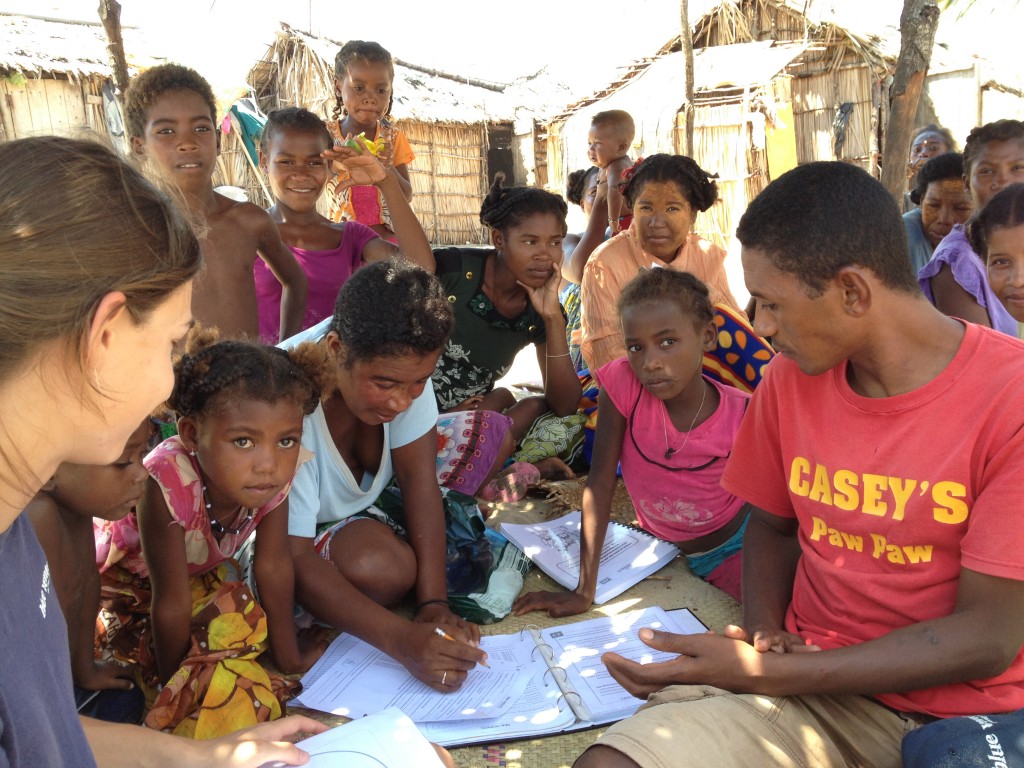
Lison and Emmanuel with Lauralette in Begamela
Lison, the Safidy coordinator for this region, and Emmanuel, our dynamic community organiser, start by answering some of the women’s questions about the different contraceptive options that Lauralette will soon be able to offer. Taking this opportunity to facilitate a small group discussion, it’s clear from the women’s questions that they have a strong desire to access family planning services, particularly methods such as hormonal pills and injections which the community-based distributors (CBDs) are being trained to provide. We launch into a role-play consultation with Lauralette, revising the records that she must keep for each woman that comes to see her for contraceptive options. Lison is interested in pills, and so Lauralette diligently works through the checklist of questions in her manual to ensure that there are no reasons why pilplan might not be suitable for this client.
Satisfied with Lauralette’s understanding, we encourage her to get validated by the local health authorities so that she can begin to offer contraceptive options in her village this month. She’ll receive a starter pack of supplies from Blue Ventures, and thereafter be able to restock them at cost price from a local supply point. We look together at the envelope that she’ll use to keep the money organised, which is labelled with a simple table containing four columns; the cost price for each contraceptive, their retail price, the portion of income to be put into the envelope so that she can purchase new stock, and the portion of income that she may keep for herself. Blue Ventures originally developed this sustainable social enterprise model for community-based distribution in the Velondriake area through a collaboration with Population Services International, where it has proved effective in delivering a range of affordable contraceptive options for several years now.
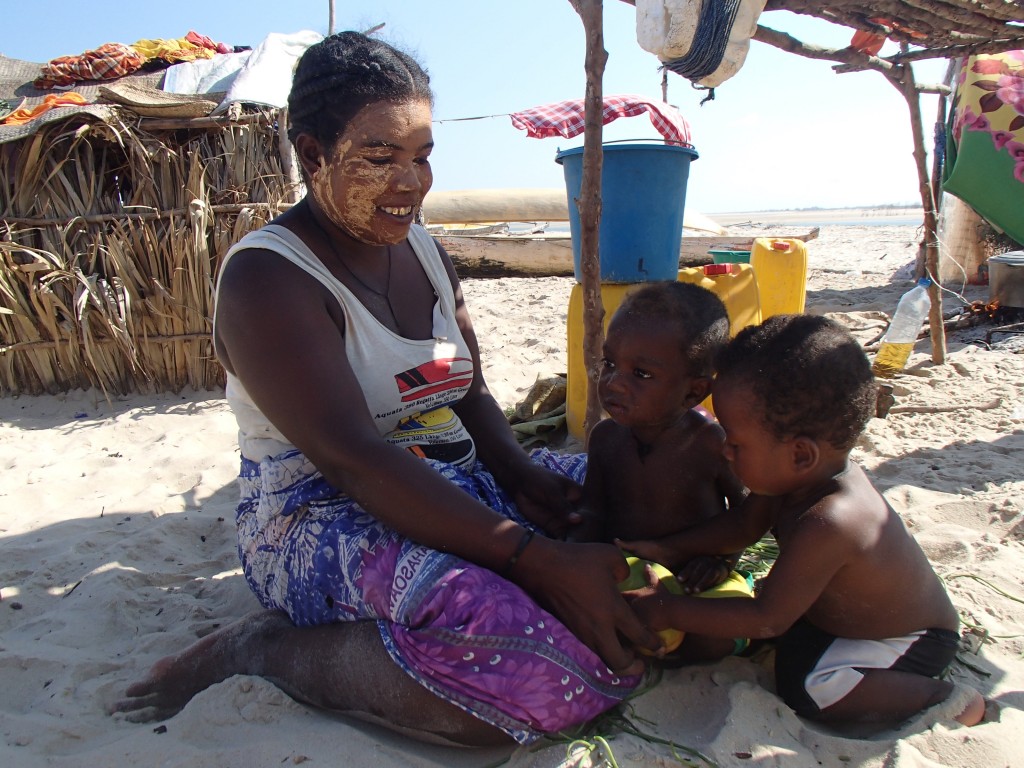
Woman and children at a Vezo fishing camp
As we leave Begamela, walking back along the beach towards the neighbouring village of Belalanda, it really strikes me just how isolated these villages are. When we’re talking about reaching the hardest to reach with reproductive health choices, we’re talking about communities whose nearest health clinic may be up to 50-kilometre journey away; more than the length of a marathon in the gruelling heat.
We pass a mangrove reserve where Blue Ventures is supporting the local community to improve the management of their crab fishery, our bare feet sinking into the soft rippled mud around the gnarly roots of the mangrove trees, and I’m reminded again how it is that our holistic outlook has led us to address the unmet family planning needs of our partner communities in this region. As a conservation organisation, we focus our work in biodiverse areas which are characteristically extremely remote and under-served by health providers. We therefore find ourselves in an ideal position to support some of the most isolated populations to access contraceptive options, by leveraging our existing infrastructure and strong community relations to combine family planning services with conservation initiatives through our “Population-Health-Environment” approach.
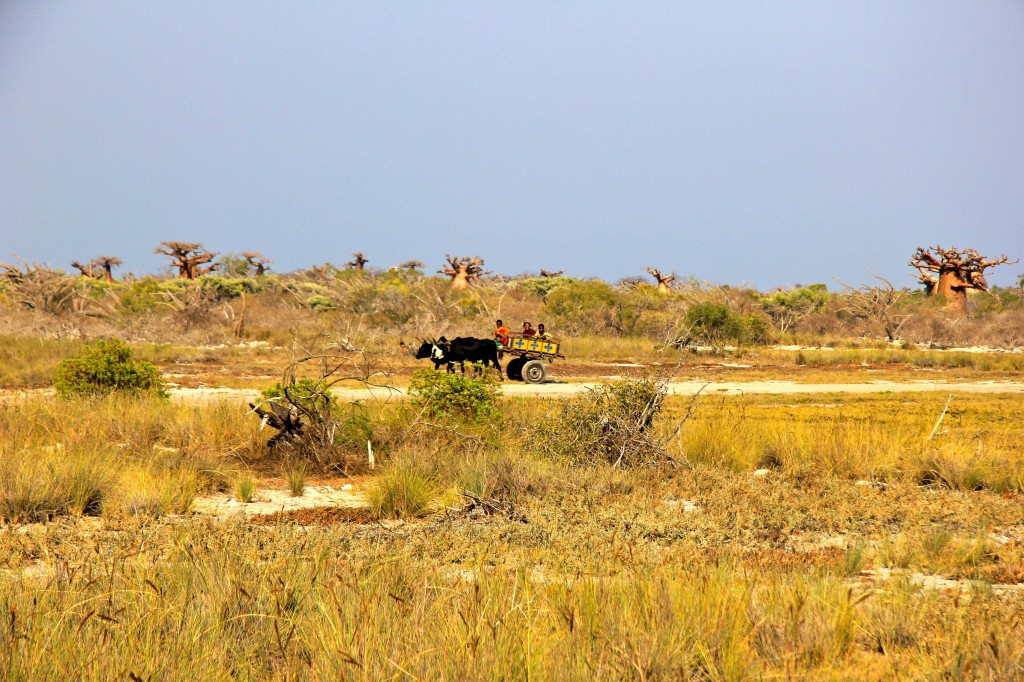
Reaching the hardest to reach (photo credit: Emilie Filou)
Later that afternoon in Belalanda, we delicately unload our equipment from the vedette, arranging the speakers and generator in a sandy clearing by the village school. A large sail is strung up, to act as a screen for the night projection that the team will deliver to present health and environmental messages to the community. As the sun sets, the sky tinges pink against the silhouette of coconut trees and pirogues lining the beach. We start up our trusty generator, and music clips resound throughout the village while the crowds gather. A slideshow of photos taken in the community yields woops of delight as people spot each other on the big screen, from adults at mangrove reserve meetings to gaggles of excitable children with toothy grins.
Finally it’s time for the presentations, with a large crowd of men, women, youth and children all assembled. Emmanuel starts by explaining the results of today’s mangrove reserve meeting with community leaders, and then gives an energetic overview of the Safidy programme. A series of animated illustrations are used to demonstrate the links between reproductive health, food security and sustainable resource management, followed by video interviews with the pastor and midwife from Belo sur Mer, who talk about the various benefits of family planning.
Emmanuel invites Lily, the CBD for Belalanda, to introduce herself, and she confidently explains the contraceptive options that she will be offering. Then he closes the presentation with some information about the upcoming visit from Marie Stopes Madagascar’s mobile outreach team, who will be offering long-acting reversible contraceptives including hormonal implants in several villages around Belo this month.
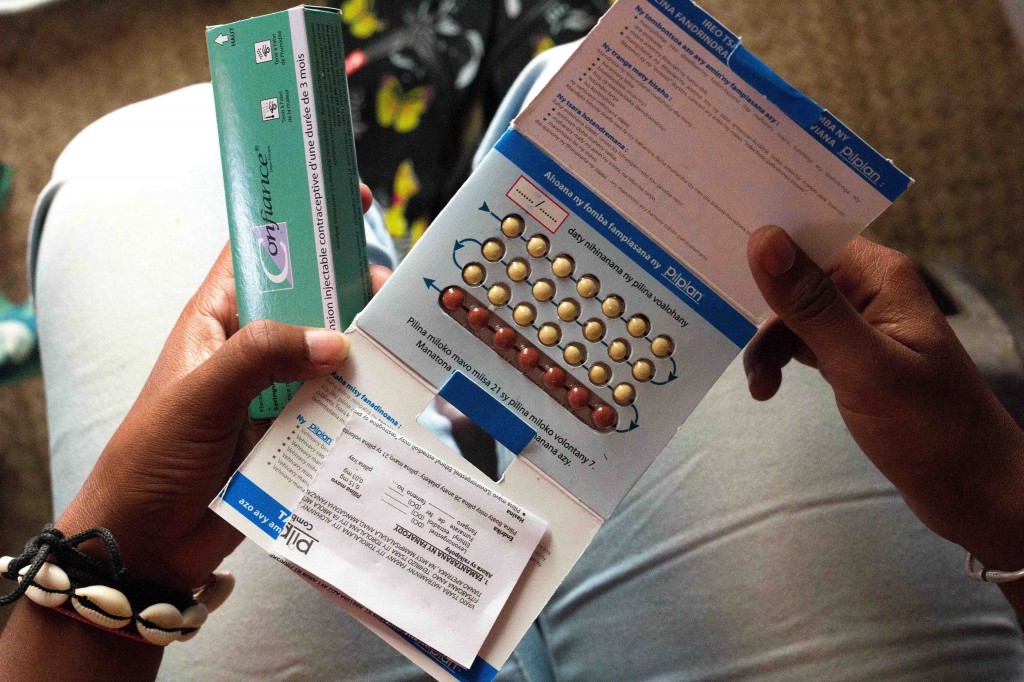
Community-based distributors are trained to offer condoms, pills and injections in their villages
As we speed towards the town of Morondava early the next morning, sunlight dancing across the water and salty spray flicking up the sides of the vedette, I reflect upon the last four weeks spent among our project sites on Madagascar’s southwest coast. In addition to the excellent progress being made with the nascent Safidy programme in Belo sur Mer, it was also incredibly encouraging to witness the impact that our six years of health work is having in the Velondriake area, where we now have a well-established network of 32 community-based distributors serving 40 villages. As a result, the proportion of women using contraceptives in this zone has increased more than fivefold since the programme began, from 10% in 2007 to 55% in 2013.
While in the village of Andavadoaka, Cynthia, one of the CBD supervisors for the Velondriake area, explained to me the importance of her work: “It’s my passion to be a community-based distributor, to teach my family and the people in my village about reproductive health. We are so motivated to share our knowledge it’s like we never sleep; we go in the market, we go near the well, we go to people’s houses, and we explain the different family planning options. It’s not just about offering contraceptives, but also giving people information and answering their questions. That’s what makes them really trust us and like coming to us… and they see the value of what we provide, because without health we can do nothing.”
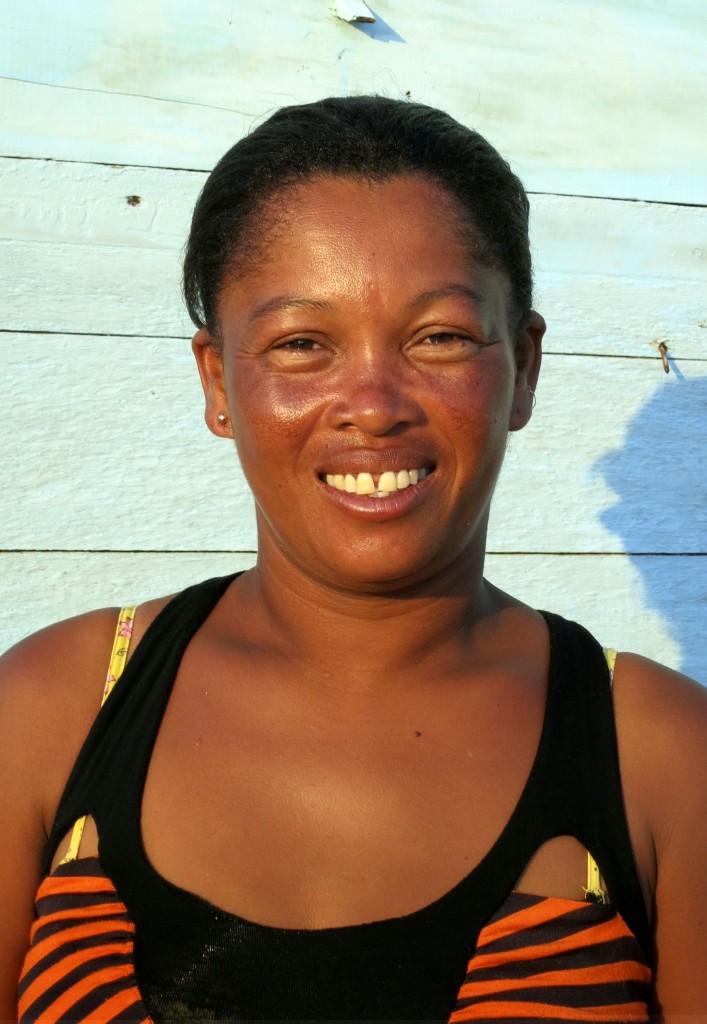
Cynthia: “without health we can do nothing”
And so from spending time with these incredibly dedicated CBDs, it is clearer to me than ever that they really are the most phenomenal health promotors and service providers in their communities. As Caroline, the Safidy coordinator for Velondriake, and I travel to Addis Ababa, Ethiopia, for the International Conference on Family Planning (ICFP) next week, we feel honoured to be representing Lauralette, Lily, Cynthia and the other inspiring CBDs that we work with, and look forward to sharing our experiences of PHE as a powerful model for reaching the hardest to reach with reproductive health choices.
Blue Ventures’ community health programme is kindly supported by the MacArthur Foundation and UNFPA Madagascar, and operates in strong collaboration with Marie Stopes Madagascar, Population Services International and the Madagascar Ministry of Health.

